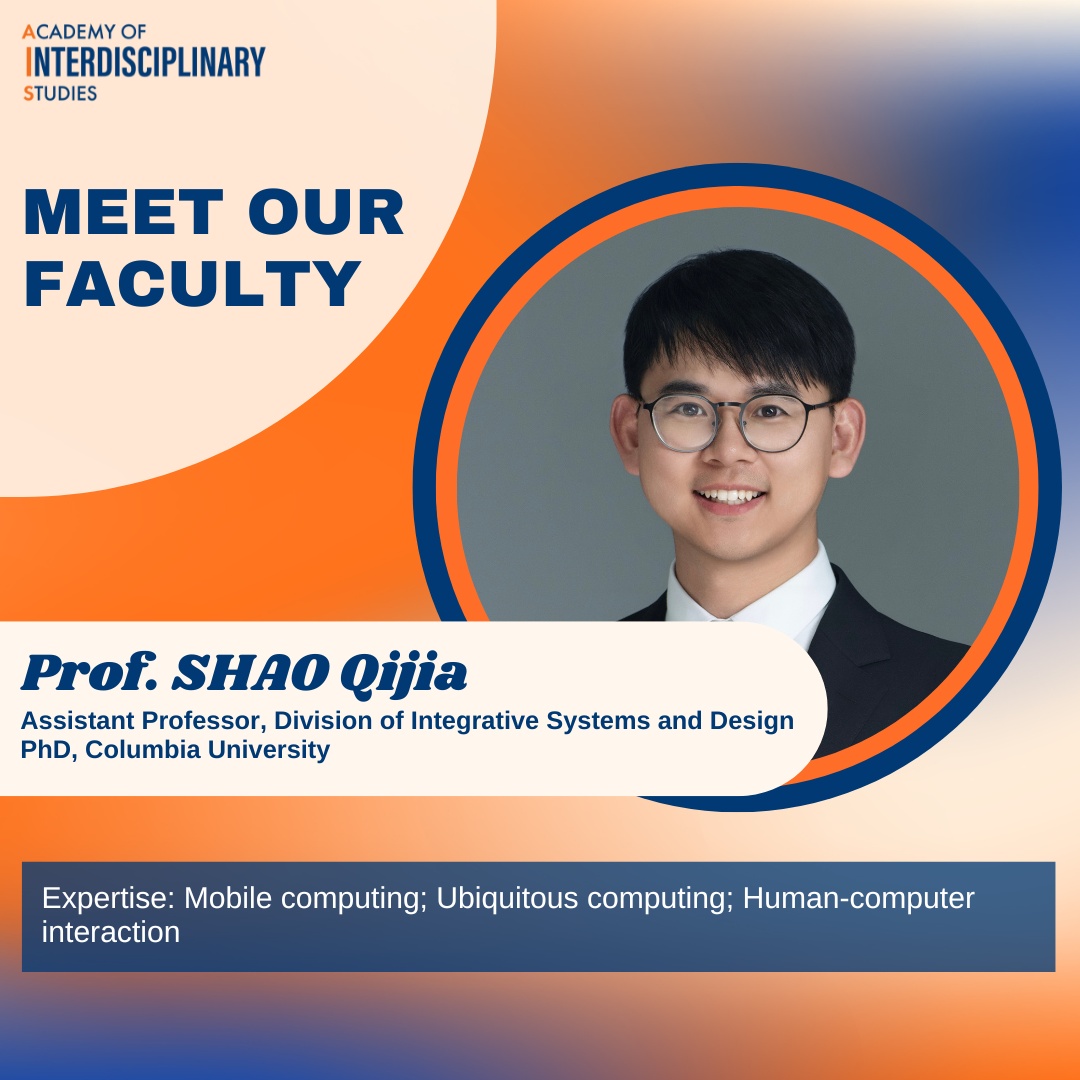Step into the world of cutting-edge technology and human-centered design with Prof. SHAO Qijia, Assistant Professor of ISD.
Fresh from completing his PhD at Columbia University, Prof. SHAO brings a wealth of experience from industry giants like Philips, Snap, and Samsung. His groundbreaking work in mobile computing and human-computer interaction is set to revolutionize how we understand and interact with technology in our daily lives.
Let's dive into Prof. SHAO's journey and his recipe for success!
-----
Could you tell us more about you?
Prior to joining HKUST, I completed my Ph.D. in Computer Science at Columbia University in 2024. My professional experience also includes research roles at Philips Research, Snap Research, and Samsung Research.
My research broadly focuses on mobile computing, ubiquitous computing, and human-computer interaction (HCI). Recently, I have been concentrating on building practically deployable systems that collect and analyse human data, including physical signals (e.g., movement, force, velocity) and physiological signals (e.g., electrocardiogram/ECG, electromyogram/EMG, brainwaves/EEG). These signals are crucial for understanding human states, as I think human states are primarily influenced by physiological signals and manifested through physical signals. By efficiently acquiring and interpreting these signals, my research aims to enhance our understanding of human behaviours, with practical applications in healthcare, education, interaction design, and entertainment, ultimately improving quality of life.
I’m excited to be part of the Division of Integrative Systems and Design (ISD) within the Academy of Interdisciplinary Studies (AIS) at HKUST. The interdisciplinary nature of my work aligns perfectly with the vision of ISD and AIS. In Spring 2025, I’ll likely be teaching a course on mobile and ubiquitous computing.
What inspired you to specialize in this line of research?
I have always been fascinated by the intersection of technology and human well-being. During my early academic journey, I realized the immense potential of mobile and ubiquitous computing to bridge the gap between human behavior and technology. The idea that we can build systems that seamlessly integrate into people’s lives and provide valuable insights into their health, habits, and interactions inspired me to pursue this path. I was particularly motivated by the challenge of creating systems that not only work in a lab but can also be practically deployed to make a tangible difference in the real world.
What impact do you want your work to have on society?
I want my work to contribute to improving people's quality of life by advancing technologies that can monitor and analyze human states more effectively and comfortably. Whether it’s through early detection of health issues, enhancing learning experiences, or creating more natural interactions with technology, I hope my research can lead to tools that empower individuals and make everyday life easier and more fulfilling.
Do you have any advice for students interested in your research area?
Embrace interdisciplinary thinking is important. The field of mobile and ubiquitous computing spans multiple domains, from hardware to data analysis to understanding human behavior. Be open to learning from different disciplines, as this will give you a more holistic perspective. Additionally, always think about the practical applications of your work. It’s important to keep the end user in mind and ensure that the systems you develop can be effectively used in real-world scenarios.
Could you share a fun fact about you?
I love experimenting in the kitchen. I’ve been on a mission to cook a traditional dish from different countries! I hope to keep it up, though it’s tough with how convenient and delicious the food is here in Hong Kong!





